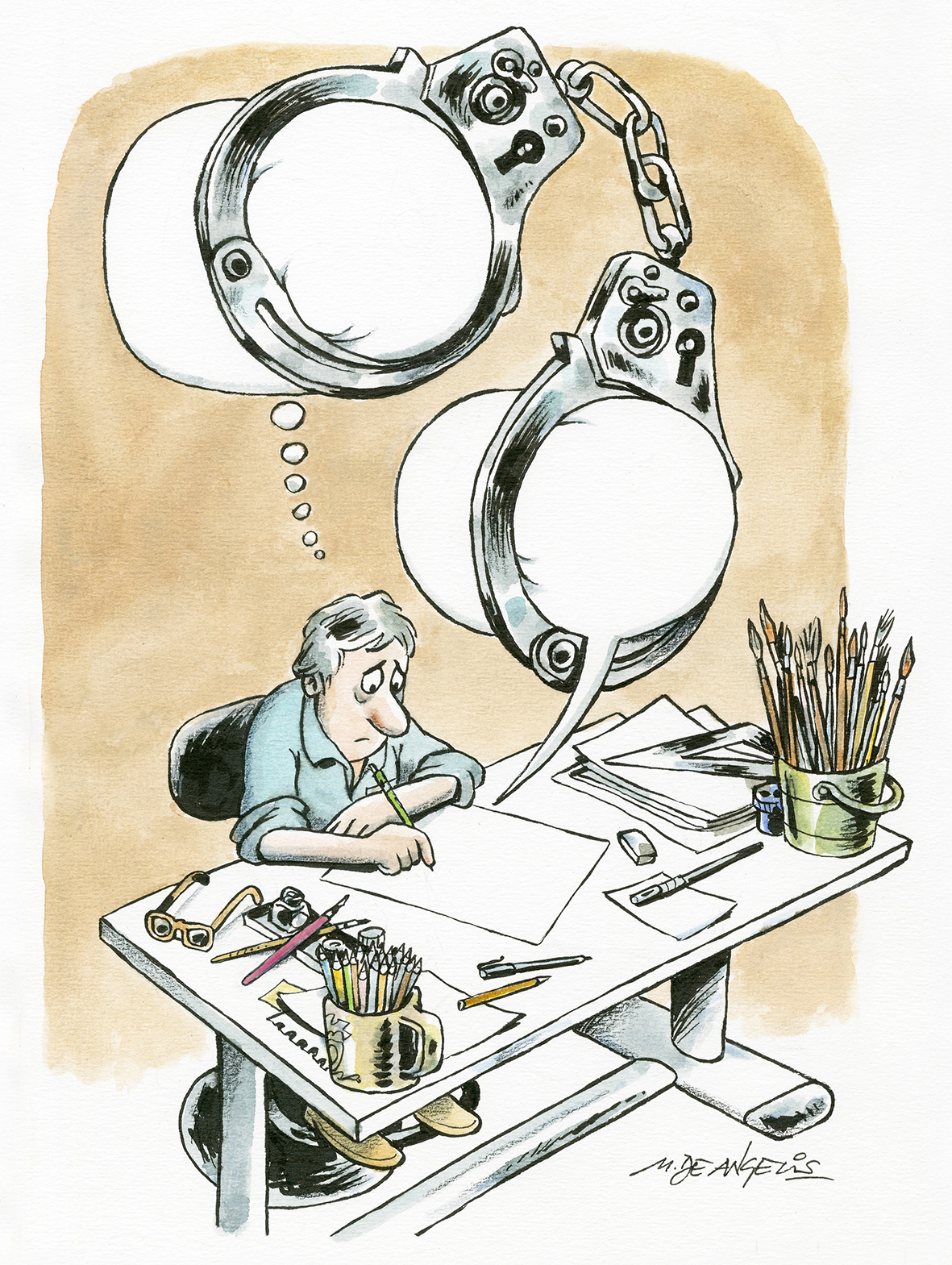
“The tyrants of this world have taken advantage of the turbulence of the period 2020-2023 (pandemics, wars, diplomatic tensions, digital disinformation, etc.) to tighten their grip on the media, and in particular on press cartoonists”, says cartoonist Kak, President of Cartooning for Peace. Among the fears of the moment is the vice that is tightening dangerously in Russia and India.
True to Heraclitus’ adage, “Crisis is the mother of opportunity”, the tyrants of this world have taken advantage of the turbulence of the period 2020-2023 to tighten their grip on the media, and in particular on press cartoonists.
Pandemics, wars, diplomatic tensions, digital disinformation… all these are opportunities to legitimise new regulations which, on the laudable pretext of protecting the population, will provide the legal means to muzzle dissidents, accused in turn of “attempting to destabilise the State”, “digital terrorism” or “pacting with foreign powers”.
The latest report from Cartooning for Peace and Cartoonists Rights on the “Situation of threatened cartoonists around the world” shows a sharp rise in the number of alerts.
Our two organisations, which specialise in the defence of press cartoons, note that, in addition to the list of historically repressive countries such as China, Iran and Cuba, there are now a large number of regimes where cartoonists are under threat: Türkiye, Algeria, Afghanistan (with the return of the Taliban), Jordan, Bangladesh, Malaysia, the Philippines… And of course Mr Putin’s Russia, where the latest cartoonists have had to put down their pencils or flee the country, like Denis Lopatin and Viacheslav Shilov, both of whom have taken refuge in France.
Some alarms have even sounded in countries even closer to home. Hungary, for example, is a member of the European Union, where cartoonist Gábor Pápai came under fire from religious lobbies, with the blessing of Mr Orbán’s party. Or very recently in Tunisia, where the famous cartoonist Tawfiq Omrane was arbitrarily arrested and immediately taken to court after making a joke about the new head of government appointed by Kaïs Saïed.
But the most striking example is of course India. Embarked on a mad dash for nationalism, based on fundamentalist Hindu currents, and for control of the major media, Narendra Modi and his henchmen have joined the family of outspoken censors. The country has fallen to the 161 place out of 180 in the Reporters Without Borders World Press Freedom Index, and cartoonists find themselves surrounded by repressive measures and hordes on social media, coordinated by a government that is well versed in the proper use of digital harassment.
With the “world’s largest democracy” on the brink of collapse, the majority of human beings are now living in a country practising state censorship. This is yet another warning to us all to not only cherish freedom of the press and the right to irreverence, but also to defend them at all costs in the face of the conquests of despotism and the disastrous advances of online disinformation campaigns.
Opinion column by Kak, President of Cartooning for Peace, in Ouest-France, September 2023 (in French)
Cartoon: Marco de Angelis (Italy)